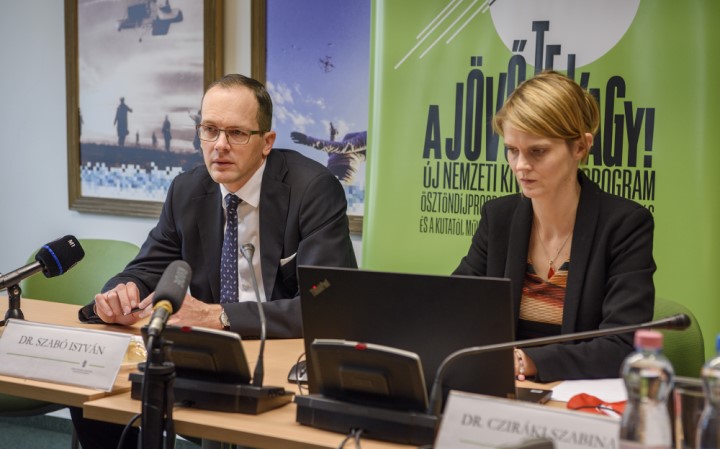István Szabó said that the ÚNKP, which has been running for several years, is a funding scheme that plays a key role in introducing young people to the world of research. It aims to create a new generation of researchers.
Thanks to the schemes set up under the programme, researchers now have a complete career plan, said István Szabó.
He said that the programme has an annual budget of HUF 4 billion and there are 24 host higher education institutions eligible to fund such scholarships.
Around half of the applications can be funded. The scholarship grant is HUF 100 to 200 thousand net per month, depending on the training programme, said István Szabó.
He also pointed out that about three quarters of the (ungraduated) higher education students participating in the programme already author some form of scientific publication.
Based on the data, it seems that the programme has successfully achieved its goal of encouraging students to pursue international research, said István Szabó.
Szabina Cziráki, Secretary of the National Council of Student Research Societies, reminded that the ÚNKP “works” with six funding schemes, each with its own call for proposals.
In 2019, the NRDI Office, with the policy support of the Ministry for Innovation and Technology, took over and launched the first call for proposals for the ÚNKP, which was launched in 2016 and provides scholarships to the most outstanding young Hungarian talents in higher education.
Source: MTI
 |
| Dr. István Szabó and Szabina Cziráki |






